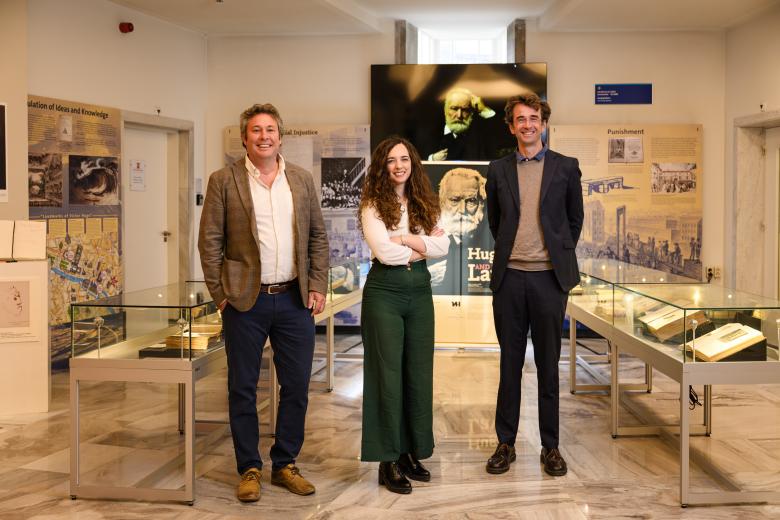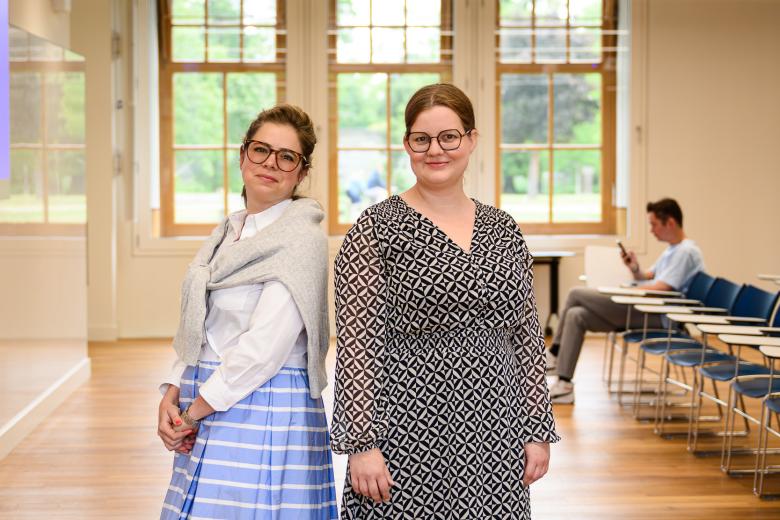Ius Commune Prize 2021
The Ius Commune Prize has been awarded since 2001. The Board of the Ius Commune Research School has decided, as result of the great success of former years, to organize the Ius Commune Prize this year again. The prize will be awarded to the PhD student or starting researcher who wrote an article of outstanding quality which falls within the material scope encompassed by the objectives of the Ius Commune Research School.
The value of the prize is € 1250,-.
Articles must be submitted by electronic mail (marjo.mullers@maastrichtuniversity.nl) before September 1, 2021.
The jury consists of Dr. Sander Jansen (Maastricht University), Dr. Michael Milo (Chair, Universiteit Utrecht), Prof.Dr. Ilse Samoy (KU Leuven), Prof.Dr. Hildegard Schneider (Maastricht University) and Prof.Dr. Annette Schrauwen (Universiteit van Amsterdam).
Conditions:
- The article may be submitted by a promovendus or by a researcher (within 2 years from defending the Ph.D. thesis). Eligibility is not restricted to members of the Ius Commune Research School.
- The article should be within the field of the Ius Commune Research School. This implies that the submission has to deal with either comparative law or with harmonisation or unification of national legal systems in Europe.
- The article is written in the Dutch, English, German or French language.
- The article is allowed to have been published elsewhere, but not before the year preceding the awarding of the Prize.
- Candidates are allowed to submit only one article.
- The jury may decide to award the Prize to two or more candidates. In this case the Prize money shall be divided accordingly.
- The jury may decide not to award the Prize if they feel that no article of sufficient quality was submitted.
- The jury may decide to select other outstanding articles to be honourably mentioned.
- The jury may decide, with the authors’ consent, to have the most outstanding articles published.
- Articles must be submitted by electronic mail before September 1, 2021. Candidates will be informed of the final decision of the jury at the following yearly Ius Commune Conference and on the Ius Commune website.
- A candidate that won the Prize in a previous year cannot participate again.
- The candidate who wins the Prize is supposed to attend the Ius Commune Conference which will take place in Maastricht on November 25 and 26. Travel costs and accommodation will be covered by the Ius Commune Research School.
Candidates are kindly requested to send a cover letter with their article clearly stating that the article is to be considered as a submission for the Ius Commune Prize.
Articles and enquiries should be addressed to: marjo.mullers@maastrichtuniversity.nl
Mrs. M. Mullers Maastricht University METRO
Ius Commune Prize
P.O. Box 616
6200 MD Maastricht The Netherlands
Tel: +31 43 3883207
The Research School Ius Commune
The Ius Commune Research School is a cooperation of the Law Faculties of Universiteit Maastricht, Katholieke Universiteit Leuven, Universiteit Utrecht and Universiteit van Amsterdam. The School was established in 1995 and was formally recognized by the Royal Dutch Academy of Sciences in 1998 and lately in 2009. The School accommodates about 300 (senior) researchers and 230 research fellows (PhD students). Apart from the researchers of the four founding Faculties, the School has admitted individual members of the Law Faculties of the Vrije Universiteit and the Université de Liège among its members.
The Research School facilitates the individual research of its members and promotes the co-operation among these members. In addition, the School takes care of the programme of studies of the School’s research fellows.
The School’s Field of Interest
The Ius Commune Research School aims at facilitating high-level legal research in the field of international and transnational legal processes. Three different sets of problems are addressed by the School’s researchers:
- Which is the role of law in politics (policy) and legal practice (implementation) of international and European integration processes and to what extent is international integration dependent upon harmonisation of law (ius commune)?
- Which effects has international and European integration on harmonisation of law and on the specific character of national legal cultures and legal systems?
- Which role play principles of democracy and the rule of law in foundations of a ius commune on the domain of public law and private law, in particular regarding to what extent fundamental freedoms and constitutional rights do play a role?
Research programmes
- Contract Law and Law of Obligations in General
- Family Law
- Property Law
- Liability and Insurance
- Transnational Environmental Law
- Legal Persons in Europe
- Fiscal Problems in the Internal Market
- Foundations and Principles of Civil Procedure in Europe
- Intellectual Property
- Constitutional Processes: the Interaction between the National and European Dimension
- Judicial Protection and Law Enforcement: the Interaction between the National and European Dimension
- Integration, Differentiation and Flexibility: New Perspectives on EU Law and Policy
- Constitutional Processes in the International Legal Order
See https://www.iuscommune.eu/prijs.aspx?context=Prijs_Oproep&language=English
Also read
-
Inaugural lecture Jan Willem van Prooijen
What drives people to embrace radical conspiracy theories, sometimes with far-reaching consequences for society? During his inaugural lecture on Friday 27 June, Prof. Dr. Jan Willem van Prooijen (radicalisation, extremism, and conspiracy thinking) will address this urgent question.

-
Where Law Meets Pop Culture: A Creative Space for Exploration
From hip-hop to Victor Hugo, and historical fiction to classic cinema: What do these things have in common with the study of law, you might think? At Maastricht University’s Faculty of Law, a growing group of researchers and students is exploring exactly that and even more.

-
Innovative Education in Personal and Family Law
Thanks to the SURF Incentive Scheme for Open and Online Education (still available at the time), Gwen Noteborn (university lecturer in personal and family law at Maastricht University), Claudia Hocks and Janneke Hendrix (lecturers in law at Zuyd University of Applied Sciences) were able to get...
